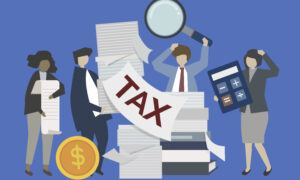
It’s no secret that Americans are worried about having enough money to pay the bills. Employees have been laid off or furloughed in record numbers. The Department of Labor is reporting 17 million layoffs as of April 9, 2020.
If you are one of these people, I am so sorry to hear that. It’s hard to have finances to worry about on top of a pandemic. But all is not lost. Here are some financial tips based on recommendations from the Consumer Financial Protection Bureau (CFPB).
Create a crisis budget
Assess your financial situation and determine your money priorities. If you can’t pay all your bills due to a cash shortage, pay your living expenses first. Focus on bills like your mortgage, rent, car note, utilities, food, and medicine over any other debts, especially credit cards. These will keep a roof over your head, the lights on, and food on the table. Plus, this will keep you healthy until you can return to work.
What to do if you can’t pay your bills
During these hard times, contact your creditors or landlord directly and let them know your situation.
Check your credit report to assess your creditworthiness. You may want to consider a new loan or additional credit as a bridge until you can return to work. Falling behind on your payments can have a lasting impact on your credit score, even years from now.
If you need professional guidance on a financial issue, first seek assistance from your credit union or bank. You may also want to consider finding an Accredited Financial Counselor (AFC) or a HUD-approved housing counselor if you have an issue with your mortgage or servicer.
Beware of fraud
Be cautious of emails, texts, or social media posts that may be selling fake products or information about coronavirus cases. Never give out personal information over the phone like your Social Security Number.
Unemployment benefits and the CARES Act
If you’ve been laid off, you may eligible for expanded benefits under the CARES Act in addition to regular unemployment benefits.
The CARES Act creates a new temporary federal program called Pandemic Unemployment Assistance (PUA). Pandemic Unemployment Assistance provides up to 39 weeks of unemployment benefits. If you receive PUA benefits, you can collect an additional $600 weekly benefit amount (WBA) under the Federal Pandemic Unemployment Compensation (FPUC) program.
The bill also covers independent contractors. You may be eligible for PUA benefits if you’re unemployed, partially employed, or unable to work because of the COVID-19 crisis.
Hopefully, these suggestions can guide you and your finances through this crisis.


